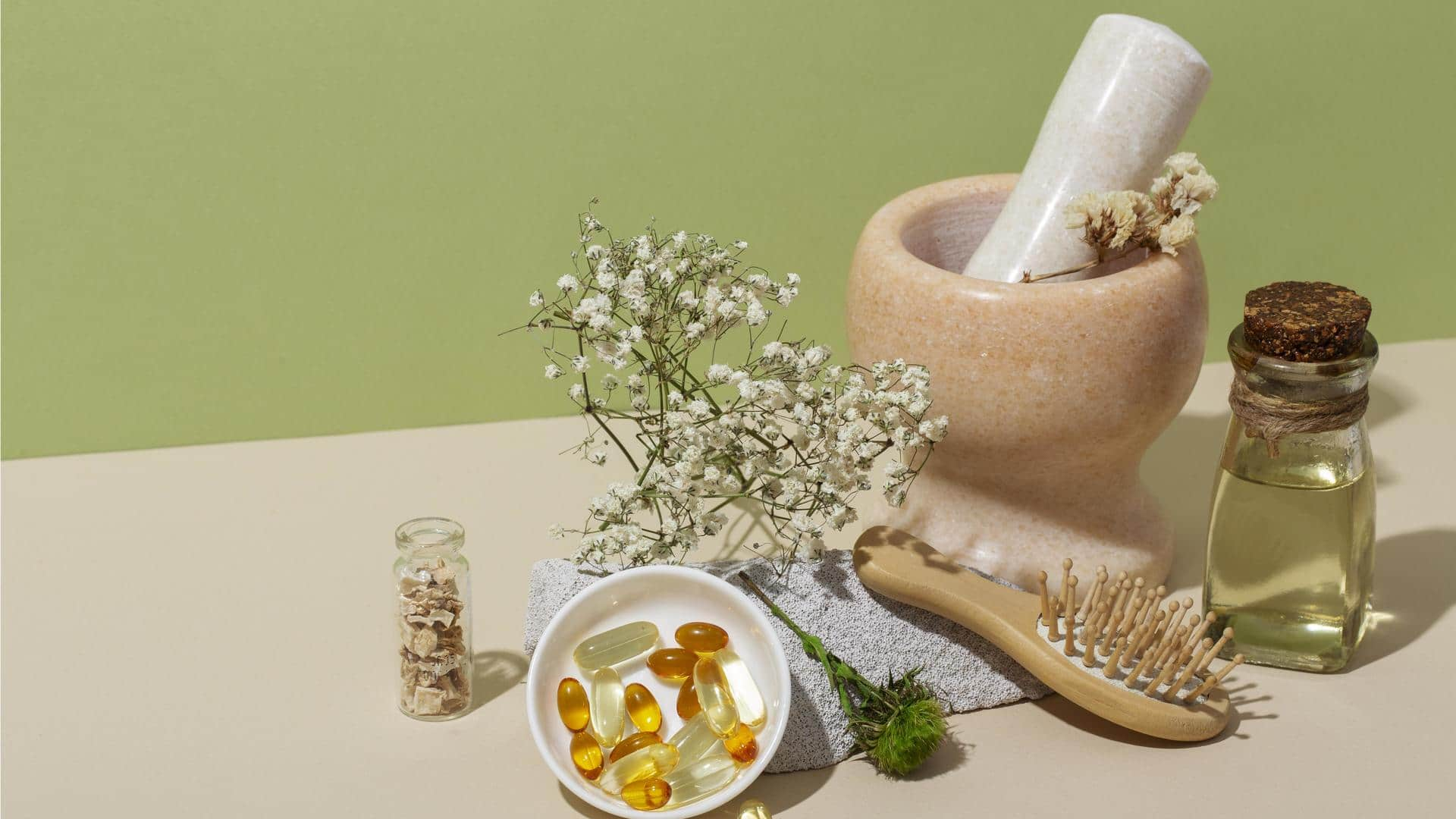
Vegans can also enjoy the benefits of collagen
What's the story
Collagen, a protein typically found in animal products, is essential for healthy skin, joints, and bones. Many people believe since collagen is predominantly found in animal sources, vegetarians and vegans cannot reap its benefits. However, this is a myth. NewsBytes talked to Maitri Trivedi, nutritionist at Pure Nutrition Naturals to know about practical ways vegetarians and vegans can derive the benefits of collagen.
Context
Here's what our expert says
Collagen is a type of protein that is found as an integral part of all connective tissues in the body. These tissues include the cartilages like the nose, ears, the shock absorbers of the knees and other joints, the structural framework for bones and blood vessels. Collagen is formed from amino acids which are the basic building block of all proteins and vitamin C.
Vegan supplements
Collagen supplements derived from plant-based sources
Plant-based collagen supplements derived from wheat, peas, and soy are readily available in the market. Although these supplements do not contain actual collagen, they are rich in amino acids, which are essential building blocks for collagen production. These supplements are also high in vitamin C, which serves as an antioxidant and protects collagen from free radical damage.
Plant power
Nutrient-dense plant-based foods
Vegetarians and vegans can obtain the nutrients required for collagen synthesis by consuming nutrient-dense plant-based foods. Fruits and vegetables, particularly those rich in vitamin C, are essential for collagen synthesis. Some examples of fruits and vegetables rich in vitamin C include citrus fruits, bell peppers, broccoli, and spinach. Other foods rich in amino acids required for collagen synthesis include legumes, nuts, and seeds.
Hydration
Hydration levels in the body
The body's ability to produce collagen is closely linked to its hydration levels. Dehydration can reduce the production of collagen, leaving the skin dry, dull, and wrinkled. By drinking enough water and other hydrating liquids like coconut water and herbal tea, vegetarians and vegans can increase their body's collagen production. Listen to your body and drink enough water to stay hydrated throughout the day.
Sugar levels
Reduced consumption of sugar
Excessive sugar intake can lead to a process called glycation, where sugar molecules bind to collagen fibers, resulting in damage and reduced elasticity. This process can lead to premature aging, wrinkles, and skin damage. Vegetarians and vegans can maintain healthy collagen levels by reducing their sugar intake and consuming natural sweeteners such as honey, maple syrup, or jaggery.
Stress levels
Stress management
Chronic stress releases more cortisol, which causes blood vessels to constrict and redirect blood to other organs instead of the skin. This weakens collagen production, which causes fine lines, wrinkles, and other signs of aging. To manage stress, practice meditation and yoga, and exercise daily. Getting enough sleep is equally important for healthy collagen production in the body.